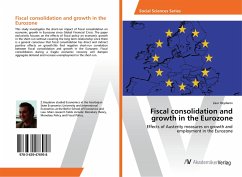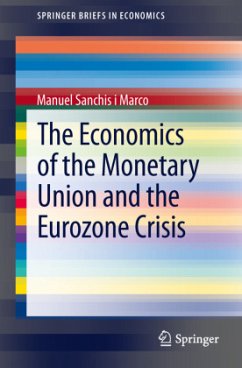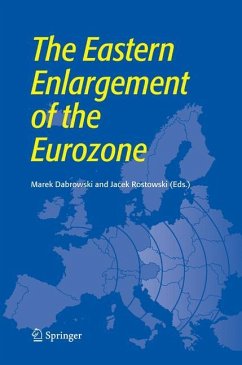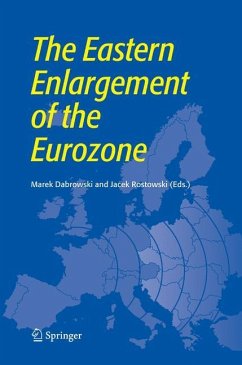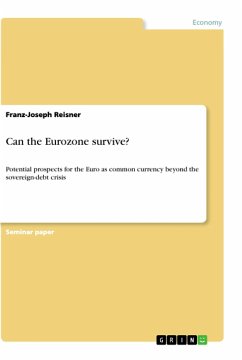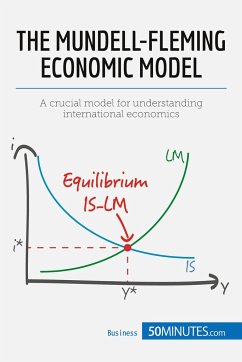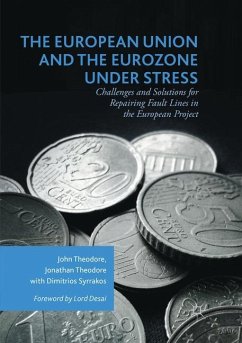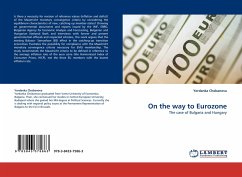
On the way to Eurozone
The case of Bulgaria and Hungary
Versandkostenfrei!
Versandfertig in 6-10 Tagen
32,99 €
inkl. MwSt.

PAYBACK Punkte
16 °P sammeln!
Is there a necessity for revision of reference values (inflation and deficit) of the Maastricht monetary convergence criteria by considering the equilibrium characteristics of new, catching up member-states? Drawing on governmental documents and reports issued by the IMF, EBRD, Bulgarian Agency for Economic Analysis and Forecasting, Bulgarian and Hungarian National Bank and interviews with former and present governmental officials and respected scholars, this work argues that the existing Balassa- Samuelson (BS) effect in the catching-up transition economies frustrates the possibility for comp...
Is there a necessity for revision of reference values (inflation and deficit) of the Maastricht monetary convergence criteria by considering the equilibrium characteristics of new, catching up member-states? Drawing on governmental documents and reports issued by the IMF, EBRD, Bulgarian Agency for Economic Analysis and Forecasting, Bulgarian and Hungarian National Bank and interviews with former and present governmental officials and respected scholars, this work argues that the existing Balassa- Samuelson (BS) effect in the catching-up transition economies frustrates the possibility for compliance with the Maastricht monetary convergence criteria necessary for EMU membership. The study recommends the Maastricht criteria to be defined in reference to the average inflation rate of the euro zone (the Harmonized Index of Consumer Prices, HICP), not the three EU members with the lowest inflation rate.





